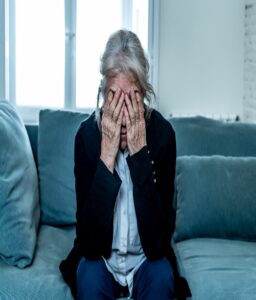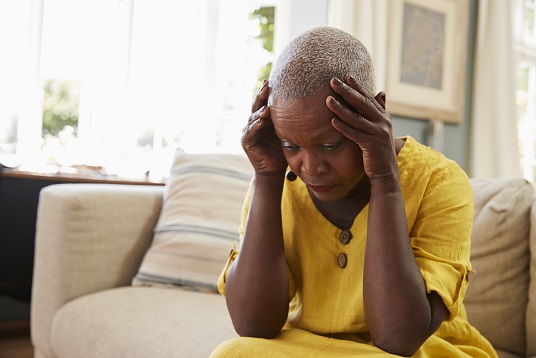With the news that about half of all carers experienced stress and anxiety over COVID, it is worth understanding what anxiety is and how it might affect staff members. There is a lot of information, and sadly misinformation, about anxiety as anxiety is the number one mental health condition which affects humans – this makes it normal and something which care managers and staff should discuss in the workplace.
In their state of care report, the CQC recognize that stress and burnout are real issues in health and social care, http://cqc.org.uk/publications/major-reports/soc202021_01g_stress-burnout.

In essence anxiety is the irrational fear of things which have yet to happen, in that sense it is future orientated and is an exaggeration of the reasonable and rational thoughts which affect us all as we look to the future and future events.
What makes anxiety an issue is when it interferes with a person’s life, at which point it might be called generalized anxiety disorder or GAD.
GAD is associated not only with mental health signs and symptoms, but also physical health issues which arise, at least in part, in response to the activation of pathways in the brain, some common signs and symptoms are listed in the box:
Of course, there are other conditions which also cause these signs and symptoms, so if you, or a member of your team, starts to show these signs they should see a health care professional, perhaps their GP, and get a proper diagnosis. The thing about a diagnosis is that it is the key to getting help.
How can you, and your team members avoid becoming overly anxious? The key lies, as so often, in looking after yourself. Some key means of avoiding anxiety include:
- avoiding illegal drugs
- moderate alcohol use
- not smoking
- exercising
- talking about things with friends, family and colleagues
It is also important that people recognize that if they are starting to get stressed and anxious, the best time to seek help is early. Early support from your GP can help stop the anxiety progressing to something which interferes with your life.
If you, or someone you know has anxiety the GP can arrange access to information about self-help which can be facilitated if needed, group therapy and in some cases the use of antidepressant medications.
 The best care providers have workplace environments where people can discuss their concerns openly and honestly and where supervision is used as a means of personal and professional development
The best care providers have workplace environments where people can discuss their concerns openly and honestly and where supervision is used as a means of personal and professional development
See the careis training app for our supervision record, https://www.careis.net/features/.
Good workplaces, and managers, praise staff when things are going right because they know that praise bolsters people’s self-esteem and is good for their mental health. Good managers also know that they need to speak to people about whom they have concerns. Catching someone with anxiety early, can help prevent the anxiety progressing.
Some signs that someone may have anxiety include:
- Increased amount of sick leave
- Drop in their performance
- They struggle to make decisions
- Their eating habits change
- They start excessive smoking and or drinking
Learning some mental first aid skills such as those described here: https://www.sja.org.uk/courses/workplace-mental-health-first-aid/ will help the best care managers in helping their staff and save both you and them a lot of distress.
managers in helping their staff and save both you and them a lot of distress.
Some people for whom anxiety becomes a real problem will need additional support. Such support falls under the same legislation that making reasonable adjustment for physical health falls under, and rightly so.
Such adjustments might include undertaking a risk assessment, identifying a safe place for them to be alone, identifying people to provide support in the care setting and hybrid or remote working arrangements.
Whatever you do, don’t write someone off because they have anxiety. Managers and companies who find the time and the means to support their staff benefit in the long run from a loyal work force who are well placed in their turn to provide care and support to their clients. That is after all what caring professionals do.
